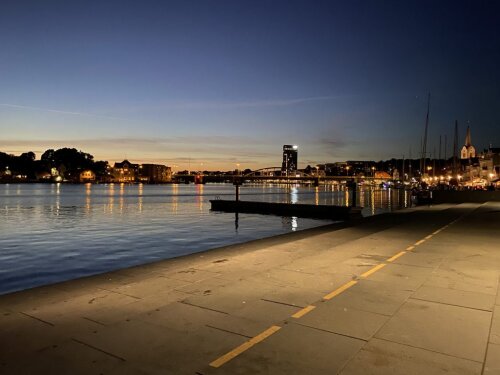Best ADR Mediation & Arbitration Lawyers in Denmark
Share your needs with us, get contacted by law firms.
Free. Takes 2 min.
Or refine your search by selecting a city:
List of the best lawyers in Denmark
About ADR Mediation & Arbitration Law in Denmark
Alternative Dispute Resolution (ADR), including mediation and arbitration, is a significant component of the legal landscape in Denmark. It provides parties with mechanisms to resolve disputes outside the traditional court system. Mediation involves a neutral third party who facilitates negotiation between parties to reach a mutually acceptable agreement. Arbitration, on the other hand, involves a binding decision made by an arbitrator or an arbitration panel. Denmark is known for its efficient and fair ADR mechanisms, which are supported by a legal framework that emphasizes confidentiality, speed, and enforceability of the outcomes.
Why You May Need a Lawyer
While ADR offers a more informal and flexible approach to dispute resolution, there are several instances where engaging a lawyer can be beneficial. These include:
- Complex contractual disputes requiring detailed legal knowledge.
- Situations where the understanding of legal rights and obligations is necessary.
- International cases where parties are from different countries with varying legal backgrounds.
- High-stake disputes where a legally binding resolution is crucial.
- Circumstances where negotiation between parties has failed, and there is a need for expert representation.
Local Laws Overview
Danish ADR laws are well-aligned with international standards, and Denmark is a signatory to several international treaties, such as the New York Convention on the Recognition and Enforcement of Foreign Arbitral Awards. Key aspects of ADR law in Denmark include:
- Flexibility: ADR in Denmark allows parties to tailor the process to their needs.
- Confidentiality: ADR proceedings are private, and outcomes are generally not part of the public record.
- Enforcement: Arbitration awards in Denmark are enforceable by law, akin to court judgments.
- Institutional Support: Several institutions, such as the Danish Institute of Arbitration, provide structured frameworks for ADR processes.
Frequently Asked Questions
What exactly is ADR?
ADR stands for Alternative Dispute Resolution and includes methods like mediation and arbitration to resolve disputes outside of court.
How does mediation differ from arbitration?
Mediation involves a facilitator helping parties reach a mutual agreement, whereas arbitration involves a binding decision made by an arbitrator.
Is ADR binding in Denmark?
Mediation agreements are not binding unless formalized in a contract, while arbitration decisions are legally binding.
Can I represent myself in ADR processes?
Yes, but legal representation is recommended, especially in complex or high-stakes disputes.
Are ADR proceedings public?
No, ADR proceedings are private and the outcomes are usually confidential.
How long does the ADR process take in Denmark?
The duration can vary, but ADR is generally faster than traditional court proceedings.
Can ADR be used in any type of dispute?
Most civil disputes can use ADR, but it may not be suitable for criminal or certain family law matters.
Do ADR decisions need to be approved by a court?
Arbitration decisions do not require court approval to be enforceable, but mediation agreements may need formalization.
Is ADR more cost-effective than going to court?
Generally, ADR is more cost-effective due to its faster resolution and lower legal fees.
What role does the Danish Institute of Arbitration play?
It provides guidelines, administrates arbitration proceedings, and offers expert arbitration services.
Additional Resources
For those seeking further information and assistance, consider the following resources:
- Danish Institute of Arbitration: Offers comprehensive ADR services and resources.
- The Danish Mediation Institute: Provides mediation services and training for mediators.
- Local Bar Associations: Can provide referrals to lawyers specializing in ADR.
- Ministry of Justice: Offers information on national ADR regulations and policies.
Next Steps
If you require legal assistance in ADR mediation and arbitration in Denmark, consider the following steps:
- Identify the specific nature of your dispute and determine whether ADR is the appropriate method.
- Consult with legal professionals who specialize in ADR to explore your options.
- Research and choose an ADR institution or service provider that aligns with your needs.
- Prepare necessary documentation and evidence to support your case in the ADR process.
- Engage in ADR proceedings with the aim of reaching a fair and expedient resolution.
Engaging with legal professionals and institutions experienced in ADR can greatly aid in achieving a satisfactory outcome.
Lawzana helps you find the best lawyers and law firms in Denmark through a curated and pre-screened list of qualified legal professionals. Our platform offers rankings and detailed profiles of attorneys and law firms, allowing you to compare based on practice areas, including ADR Mediation & Arbitration , experience, and client feedback.
Each profile includes a description of the firm's areas of practice, client reviews, team members and partners, year of establishment, spoken languages, office locations, contact information, social media presence, and any published articles or resources. Most firms on our platform speak English and are experienced in both local and international legal matters.
Get a quote from top-rated law firms in Denmark — quickly, securely, and without unnecessary hassle.
Disclaimer:
The information provided on this page is for general informational purposes only and does not constitute legal advice. While we strive to ensure the accuracy and relevance of the content, legal information may change over time, and interpretations of the law can vary. You should always consult with a qualified legal professional for advice specific to your situation.
We disclaim all liability for actions taken or not taken based on the content of this page. If you believe any information is incorrect or outdated, please contact us, and we will review and update it where appropriate.
Browse adr mediation & arbitration law firms by city in Denmark
Refine your search by selecting a city.
















